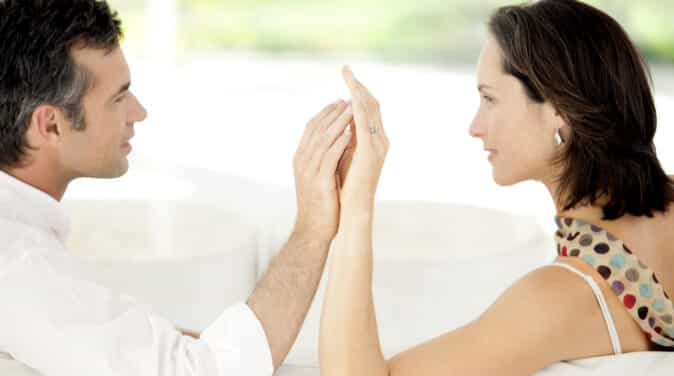Why Progressive and Religious Marriages Are Similar – and Better – Than Others

- Chemistry, Marriage, Understanding Men
I’m always wary of citing references that are openly conservative because of the inevitable internet backlash about bias.
Then again, I think it’s really important to do what most liberals don’t do: acknowledge that just because a conservative has an idea, it isn’t inherently wrong.
Enter Bradford Wilcox, a sociology professor at the University of Virginia.
Wilcox is – like me – pro-marriage. He comes at things from a religious angle. I come at them from a secular one. And while I can’t speak for Wilcox, I can assure you I am not anti-single or remotely judgmental of those who choose to fly solo in life. What I also know is that pretty much everyone is happier when they’re in love, which is why I remain a fierce advocate for making healthy long-term relationship choices.
Anyway, this New York Times piece proffers a different look at marriage and points out that traditional marriage is often more satisfying than egalitarian marriage. He starts off with the common assumption in our progressive society:
No one wants a world in which women are uneducated, lack choices and resources, and are stuck playing housewife against their will.
“A 2016 report from the Council on Contemporary Families suggested that in “today’s social climate, relationship quality and stability are generally highest” in more egalitarian relationships. The Bloomberg Opinion columnist Noah Smith has speculated that “maybe liberal morality is simply better adapted for creating stable two-parent families in a post-industrialized world.”
In theory, that sounds great. No one wants a world in which women are uneducated, lack choices and resources, and are stuck playing housewife against their will. What my fellow liberals rarely seem to acknowledge is that women and men are not the same and, therefore, don’t necessarily want the same things.
“The Pew Research Center reported in 2013 that about two-thirds of married mothers would prefer not to work full time — a fact that is often overlooked in our public conversation about work and family, which is heavily influenced by progressive assumptions. Anna says she is grateful that because Greg works hard at his small business, she has been able to make this choice.”
That describes my marriage entirely. My wife had the same job for 16 years and loved it. Then she got pregnant. She asked for a 3-month maternity leave. Then she asked for a 3-month extension. Then she told her boss she was going on “Eternity Leave.” That was 8 years ago. We are fortunate to be able to live on one income. But the point is that there are LOT of women – evidently 2/3rds of them – who would prefer not to be in the office for 40+ hours a week. A more traditional – some say “1950’s” marriage may be a better fit for those women based on their stated preferences.
That’s where religion comes in. As an atheist, I don’t like touting the virtues of religion at all. At the same time, Wilcox’s study shows that “feminism and faith both have high expectations of husbands and fathers, if for very different ideological reasons, and that both result in higher-quality marriages for women…
In fact, in listening to the happiest secular progressive wives and their religiously conservative counterparts, we noticed something they share in common: devoted family men. Both feminism and faith give family men a clear code: They are supposed to play a big role in their kids’ lives. Devoted dads are de rigueur in these two communities. And it shows: Both culturally progressive and religiously conservative fathers report high levels of paternal engagement.”
Makes sense to me. If the hallmarks of a good marriage are men who are sensitive to their wives’ emotional cues and help out with housework and childrearing, it doesn’t matter why they do it or what their religious/political leanings are.
Your thoughts, below, are greatly appreciated.









Comments